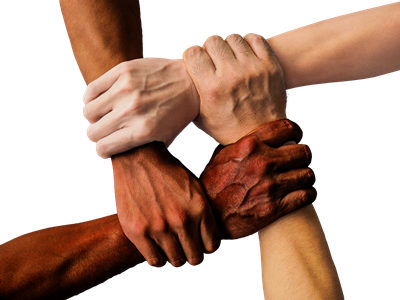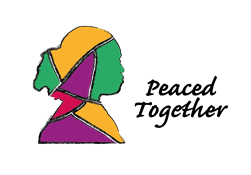Peaced Together was never designed to be a course run in isolation. In our experience, it has the most impact when embedded in a community in which people can give, receive and find positive relationships. The course developed within the relationship-based community model of LifeLine Church in East London. This guest blog is by Sally who helps run the LifeLine’s work in the local community.
When my friend Heidi shared her idea for Peaced Together with me, I knew it had the potential to impact so many lives. The course refuses to accept that brokenness is the end – many women find new hope as they complete the craft projects and reconsider some of the issues they face in their lives.
Peaced Together is a powerful course in itself, but if you talk to Heidi she’ll tell you that her intention was always that Peaced Together should be delivered in the context of community. Why? Well, community brings healing.

In 2011 Rick Bateman, of Social Circles Canada wrote this:
“In modern hospitals, where everything is scrupulously tracked and recorded, we can now see the relationship between identical procedures, recovery times and the number of visitors a patient has. The more visitors a patient has, the faster their wounds heal and the sooner they can be sent home.”
Rick Bateman
He went on to say:
“It’s not the chicken soup that makes you better, it’s the person who brings you the soup.”
I’ve seen this principle in action many times. I work for a church outreach project – professionals refer patients or clients who they have identified as isolated and in need of a place of belonging.
We find ways to connect them with positive people, help them find meaningful things to do (like Peaced Together) and support them along the way. We talk about ‘walking with’ a person rather than ‘doing a service to’ them (they’re not clients or patients to us). We expect that they have skills and gifts that they’d like to develop and use to give back. People are given dignity as they give out to others rather than always being on the receiving end.
Last week I was talking to Joy, who was referred to us over ten years ago. When she talks about the person she was then, she uses words like ‘vulnerable’, ‘depressed’ and ‘lost’. Her story is too long to go into here, but
her life began to change as she got to know trustworthy people. They opened their homes to her, spent time with her and her children, helped her get to appointments and assisted her with paperwork.
A few years ago, Joy completed a degree in nursing and she is now a Sister at a busy A&E department. She has been on an incredible journey of transformation. The icing on the cake for me was when she said, “I was vulnerable once. I know how it feels and I want to help other women who are in the same position that I was in.”
We shouldn’t underestimate the power of doing a course – and I firmly believe Peaced Together is one of the best! But if we want to see lasting transformation, we need to help people build good, positive and consistent relationships.
Sally Dixon, Project Coordinator, Open Doors


Great to read about your course but really pleased to read your comments on building relationships – thats so vital to transforming our communities -I’d add that thinking long term is also important and changing the model of community engagement that many organisations unconciously adopt.. the doing to rather than doing with- as you mention.
I dont know if you’ve come across Local Area Coordination (www.lacnetwork.org), but its a model of working in communities that reflects exactly what youve said. walking alongside people to help them build confidence in their own strengths and help them make a contribution to their community – powerful!